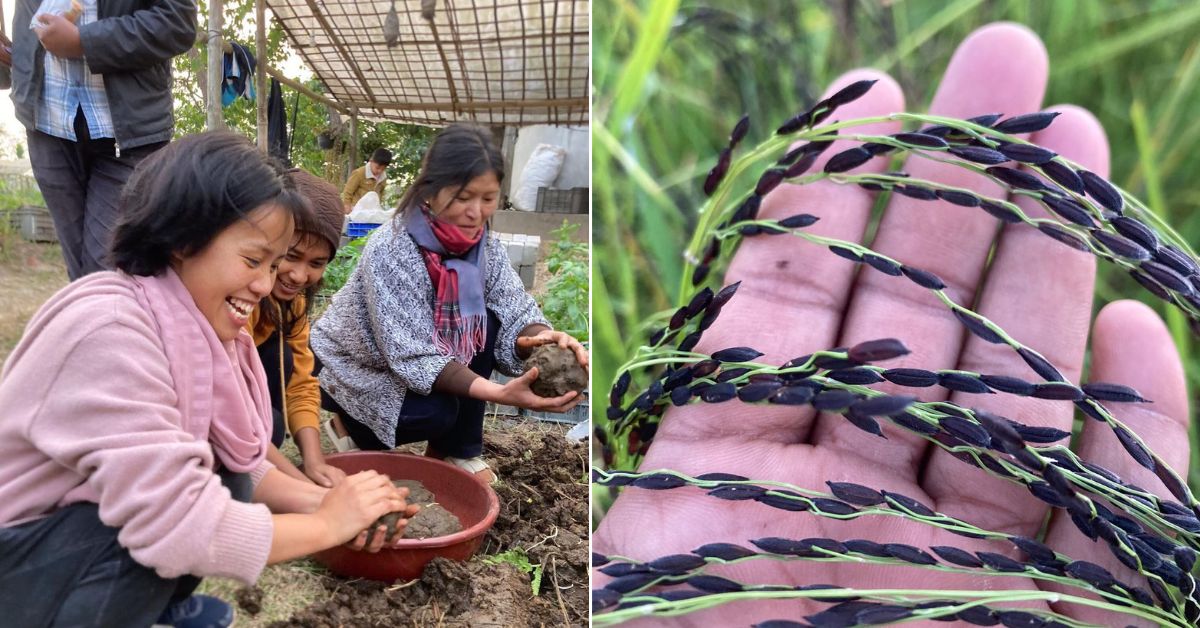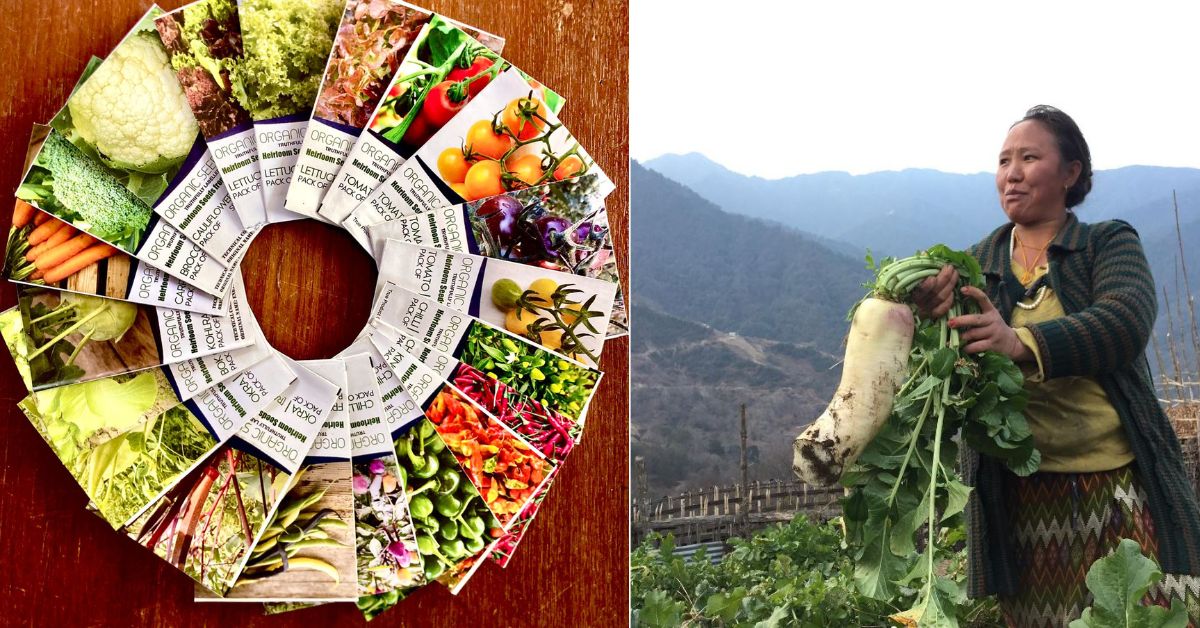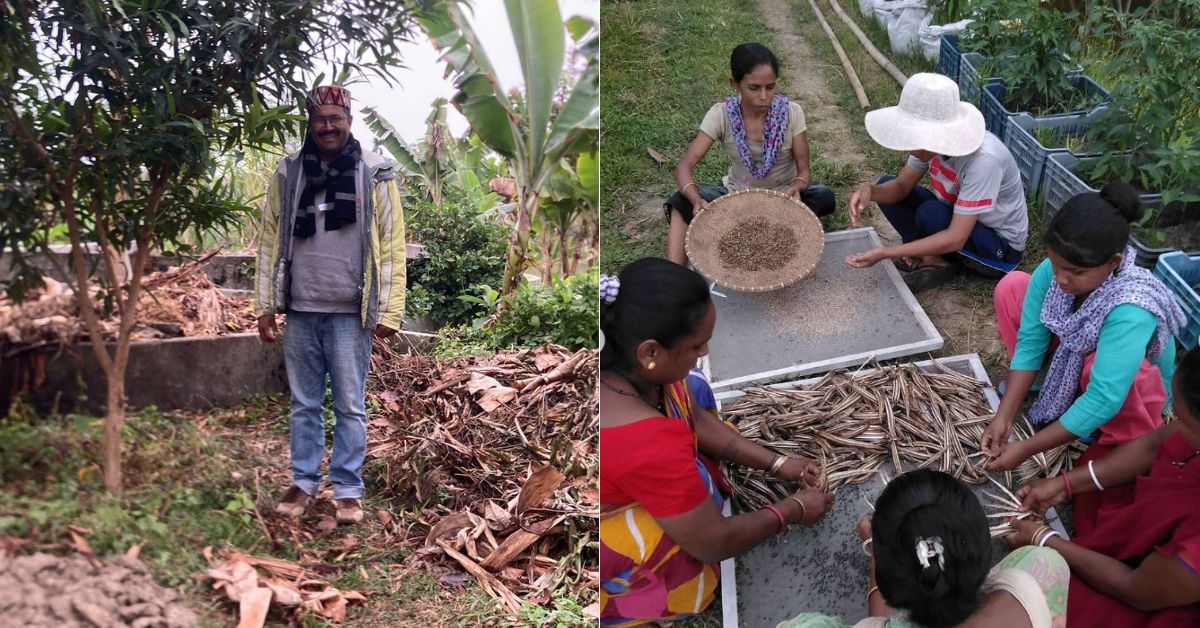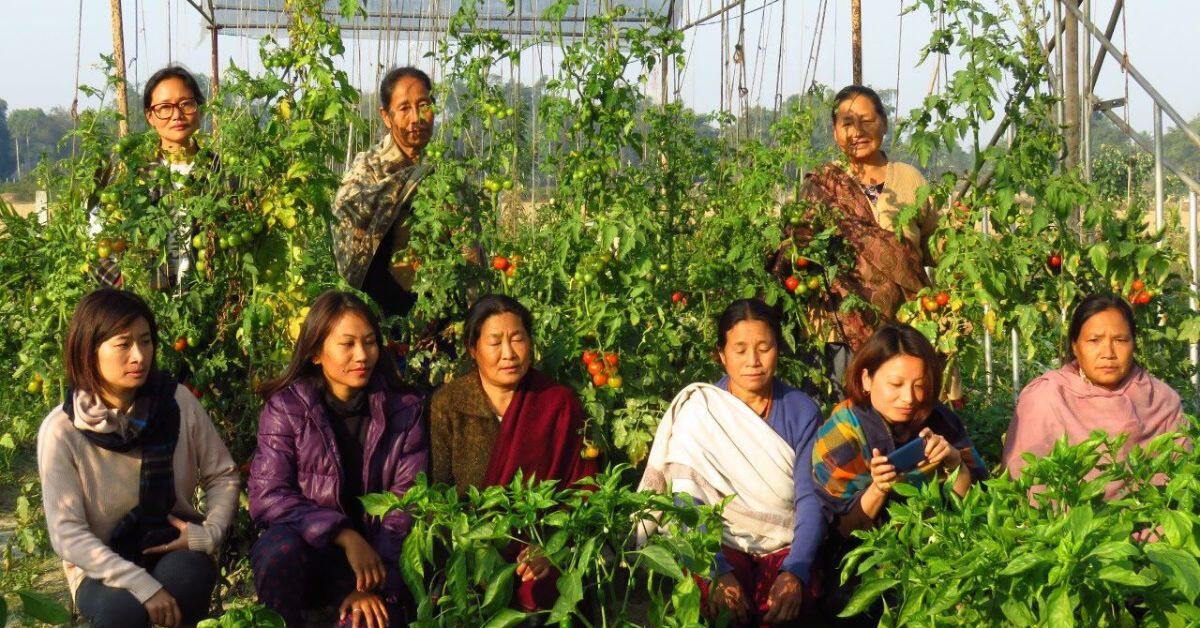
Nestled within the foothills of the Japanese Himalayas the place the Brahmaputra river meandered by means of the verdant valleys of Assam, Neelam Dutta launched into a unprecedented quest.
Neelam was not your strange villager; he possessed a deep reverence for the land and its treasures. With every passing day, he witnessed the delicate but simple shifts within the local weather, sensing the looming risk it posed to the cherished crops of his ancestors.
Decided to safeguard their legacy, he meticulously tended to a group of seeds, every a treasured heirloom from generations previous. These seeds, as soon as plentiful, have been now disappearing — victims of modernisation and the relentless march of time.
However Neelam refused to allow them to fade into obscurity. He understood that within the face of a altering local weather, adaptation was key, and these heirlooms held the secrets and techniques to survival. His endeavour grew to become a logo of resilience, a guardian of custom in a quickly evolving world.
“Heirloom seeds, handed down for at the very least 50 years, are proof against floods. This can be a very important trait in combating meals safety threats posed by local weather change,” Neelam, now 37, tells The Higher India, “Nevertheless, sadly, because of the growing adoption of genetically modified hybrid seeds, farmers within the Northeast are abandoning heirloom varieties. This, coupled with frequent floods, has made agriculture unsustainable within the area.”

“In my view, the answer lies in preserving these heirloom seeds, which function a necessary useful resource for farmers striving to regulate to local weather change. I needed to indicate them why it’s vital to preserve our agricultural heritage,” says Neelam, who went on to advertise the cultivation of heirloom seeds in his area. To this point, he has conserved over 1,000 heirloom seed forms of greens and rice, and skilled at the very least 24,000 different farmers in seed conservation.
He claims his firm ‘Pabhoi Greens’ is “the primary seed conservation firm within the Northeast” the place farmers are propagating the natural seeds on their very own. “Each time, these farmers develop heirloom seeds, they protect that variety and guarantee these seeds can be found for future generations,” he remarks.
Quest of a farm boy
Since childhood, Neelam recollects being compelled to check on account of societal strain. “I’m a farm boy!” he provides, “I needed to pursue a profession in agriculture like my father. He was a medical physician by career however stop his job to farm within the village.” However sadly, Neelam’s father handed away from a stroke whereas Neelam was finding out in Class 11.
“After finishing Class 12, I utilized for commencement in arts from an open faculty. Nevertheless, I used to be so disinterested that I uncared for to submit assignments required to finish the diploma,” shares the Pabhoi village resident.

In 2001, he inherited 18 acres of land from his father. Across the identical time, he learn Rachel Carson’s e-book ‘Silent Spring’, which highlighted the environmental hurt brought on by the indiscriminate use of pesticides. Motivated by Carson’s message, Neelam resolved to transition his land into an natural farm. By 2003, he had efficiently transformed his total acreage to natural cultivation.
“After switching to natural farming, I discovered there have been no natural seed varieties obtainable available in the market. Whereas some have been accessible for rice, none have been obtainable for greens. The absence of reserves or authenticity in seed sources was regarding. As an alternative, the market was saturated with genetically modified hybrid seeds. This was a giant worrying issue,” he says.
That’s when he additionally noticed that many of the farmers within the Northeast have been switching to hybrid seeds and ignored heirloom seeds. “After the Inexperienced Revolution, it was clear that solely hybrid seeds have been to be provided to the market to the farmers. This was by no means an answer for an ‘evergreen’ revolution,” he opines.
“Whereas hybrid seeds provide larger yields in a single season, they can’t be saved for the next yr. Consequently, farmers uncared for heirloom seeds, resulting in a lack of their sovereignty over time,” he factors out. Since then, Neelam’s mission has been to preserve decade-old seeds for future generations.
Backed by the standard knowledge imparted by his father and the aged within the village, he set out looking for these heirloom treasures. Previously 15 years, Neelam has conserved practically 800 forms of greens like tomatoes, chillies, capsicum, basil, and 200 forms of rice — together with madhuri, nanyya rice, sticky gum rice, black rice, tender rice, and joha.
“These seeds have their very own identification when it comes to style, color, and form. They’re adaptable to the varied Indian climatic zones. In a method, they’re extra resilient than hybrid seeds,” he says.
Hybrid vs heirloom seeds

Explaining the distinction between hybrid and heirloom seeds, Neelam says, “Whereas hybrid varieties give extra yield, they’re produced through genetic manipulation. We compel hybrid seeds to develop utilizing exterior fertilisers and chemical compounds.”
“Farmers in Punjab, Western Uttar Pradesh, Rajasthan, and Haryana are extraordinarily depending on these exterior inputs,” he provides.
Neelam additional factors out that, not like heirloom varieties, the seed saved from hybrids doesn’t develop true to its sort within the subsequent cycle. “They are going to be much less vigorous and extra genetically variable. For those who can not replicate it, there isn’t any level in preserving the seeds. It solely compels farmers to purchase new seeds yearly,” he says.
“In the meantime, heirloom seeds are genetically various, don’t require chemical-laden fertilisers, and are naturally proof against illness and pests. As they’re open-pollinated, you possibly can simply replicate these seeds subsequent yr,” he informs.
Giving an instance of how the produce harvested from each varieties differ, Neelam says, “In the present day, tomatoes can be found year-round, not like prior to now after we solely had them in winter. To fulfill demand, farmers now develop tomatoes in mountainous areas with heavy fertiliser use. Nevertheless, organically grown tomatoes of their respective seasons might not final as lengthy however are richer in vitamins, tastier, and extra vibrant in color.”
He continues, “In France, varied tomato varieties have been as soon as utilized in totally different recipes, however now a single, sweeter tomato is used universally, changing the bitter ones of the previous.”

Neelam says he needed the native farmers in his area to wholeheartedly undertake and swap to heirloom seeds. “In any other case there’s no level doing all this work,” he says, including that his work acquired an incredible response from the group.
So, going past conserving seeds at a person stage, Neelam now trains 1000’s of farmers in seed conservation. To this point, he has skilled 24,000 farmers throughout the Northeast — together with states like Nagaland and Arunachal Pradesh — serving to them develop and preserve their very own heirloom seeds.
Every year, Neelam sells roughly 8,000 packets of heirloom seeds at Rs 99 every to farmers. With these seeds and the coaching he gives, farmers can domesticate crops and harvest new seeds for the subsequent cycle, guaranteeing sustainable meals safety — a aim Neelam passionately pursues to at the present time.
For the previous 10 years, Diganata Bora has been cultivating greens utilizing such heirloom seeds on his two-acre farm in Paschim Manjiri village of Assam.
“In comparison with hybrid varieties, we get good yield utilizing heirloom ones. In a bigha [0.33 acre], we now get 6-7 quintals of greens over 2-2.5 quintals. Moreover, our enter bills of Rs 40,000 have been lowered to zero as we use available cow dung as fertiliser. I’m so completely satisfied to have determined to modify; now our soil fertility has additionally improved,” Diganata tells The Higher India.
Neelam concludes, “Again once I started natural farming, there have been no sources obtainable for me to study from. Now, I’m completely satisfied to have created a useful platform for different farmers. Once I go to their fields, I really feel nice to see the enjoyment on their faces. By cultivating their very own natural seeds and crops, they’ve made agriculture economically viable in our area.”
Edited by Pranita Bhat; All images: Neelam Dutta.